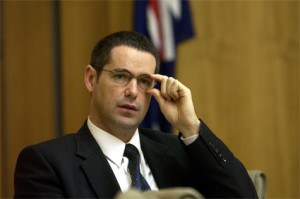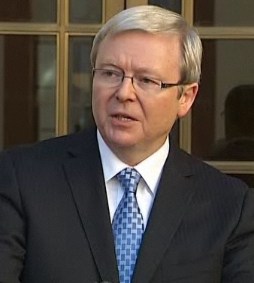 Australia’s current Labor government has refused to compromise on its goal of delivering super-fast broadband service to nearly every Australian, declaring they will get the job done no matter what it takes.
Australia’s current Labor government has refused to compromise on its goal of delivering super-fast broadband service to nearly every Australian, declaring they will get the job done no matter what it takes.
“This government is determined to build a national broadband network and will not let anything get in its way,” declared Prime Minister Kevin Rudd.
Rudd was responding to critics from opposition political parties and some private providers who had been trying to throw up roadblocks to stop the government effort, which many private providers felt ceded too much control to the government.
Rudd’s plans to construct the network were bolstered with the release of a new study showing the construction and operating costs to be lower than previously thought.
Lindsay Tanner, Australia’s Finance Minister, told colleagues, “The government would get its investment back and also, over the course of the investment, earn a modest return.”
Stephen Conroy, Communications Minister, promised wholesale pricing for the unlimited fiber-based service would range between $17.50-26.30US per month. Retail pricing for entry-level ADSL broadband service from Telstra currently runs $35US per month, with a 2 GB monthly usage allowance.
Conroy previously threatened Telstra that if it didn’t want to help build the national network at a reasonable price, the government would do it themselves.
Tony Smith, opposition Shadow Communications Minister called Rudd’s insistence on a national fiber network reckless, irresponsible, and risky.
But for Australian consumers long subjected to expensive monthly prices for heavily usage limited service, 100Mbps service — or even slower, unlimited service — represents a major improvement.
[flv width=”512″ height=”308″]http://www.phillipdampier.com/video/Network 10 Aus Cheap Broadband 6-21-10.flv[/flv]
The Ten Network in Australia ran this report on the current Australian government’s unwillingness to compromise away its goal for a national fiber network. (2 minutes)
[flv width=”512″ height=”308″]http://www.phillipdampier.com/video/Nine Australia National Broadband Plan Study 5-6-10.flv[/flv]
Channel Nine reports on the release of the broadband study showing Australia would save money building their own national broadband network instead of letting Telstra build it. (1 minute)


 Subscribe
Subscribe




